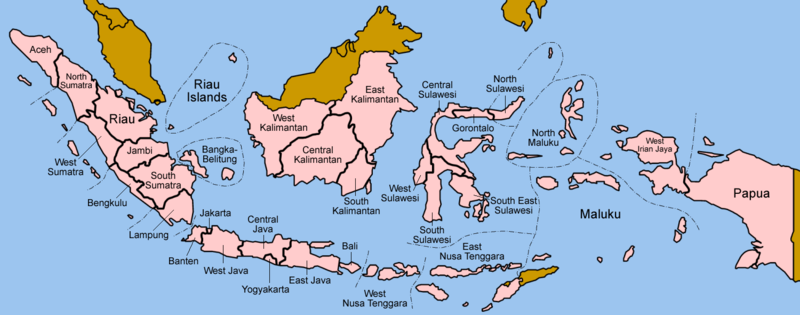Indonesian indigenous healing known as jamu involves creating medicines out of herbs, spices and other botanicals.
A well-written, factual December 2010 Jakarta Globe article entitled "High Healthcare Costs Keep Indonesians Away from Docs" by Dessy Sagita shares statistics on Indonesian citizens' attitudes toward seeking healthcare in the country. Results from several surveys cited in the article indicate that most Indonesians avoid doctors, hospitals and other medical care because they cannot afford treatment, are afraid of the pain associated with treatment and don't actually consider doctors their first choice of who to go to when dealing with a health affliction. Also, most Indonesians do not practice preventative health care (identified as wellness appointments and the like) but believe themselves to be healthy and able to live until at least age 80. Experts in the article attribute this attitude to the lack of universal health care provided by the country, along with the fact that few Indonesians can afford to visit a doctor or hospital when ill or hurt, much less utilize preventative health care.
Antara News published an article stating that Indonesia loses an enormous amount of money each year because so many people seek foreign healthcare. The article, which is brief and straightforward, says that most people believe the quality of care is better abroad rather than at home. A Health Ministry official is quoted as saying that the quality of existing healthcare is not terribly different in quality from foreign healthcare, but rather that past problems have lied in the "many shortcomings in terms of health services and patients' safety." This statement appears to be a bit of a paradox, seeing as the end of the article states that although the government has encouraged hospitals "to apply international quality standards," out of 1,500 hospitals throughout Indonesia, only four actually have.
Most Indonesians cannot afford healthcare in the country.
A similar article from Kompas.com, an online news site dedicated to Indonesian news and world news as well as Indonesian lifestyle, reports on East Kalimantan Governor Awang Faroek's banning of Indonesian officials from seeking healthcare outside Indonesia. The article keeps it brief and to-the-point. The author, through quotes and other facts, implies that the reasoning behind the banning was Faroek's belief that Indonesia's hospitals are now equipped to handle most testing and procedures that patients formerly had to seek elsewhere, leaving patients and especially officials no reason not to seek healthcare at home.
"Hospitals From Hell," published in the opinion section of Indonesia Matters (an online magazine offering "news and opinion about Indonesian affairs, with a focus on Islamization issues"), offers commentary on an article with an alarming title from Kompas.com: "Journalists Locked Up In Room By Hospital." Although the article is nowhere to be found in Kompas.com, the author of "Hospitals From Hell" summarizes the incident in a blog-style post:
Five journalists were locked up in a room on Saturday by Adam Malik Hospital, Medan for ten minutes after they attempted to report a malpractice allegation against the hospital. Kompas.com reported the journalists met a woman who accused the hospital of committing surgical malpractice against her 4 month old baby. They went along with the woman to get a proper response from the hospital, but the hospital tried to stop them from reporting the story and locked them up in a room. The journalists later reported the hospital to police.
I am guessing this was one of the many hospitals who do not apply "international quality standards."
An article entitled Bali's Heart of Darkness, published in the features section of English newspaper The Jakarta Post, exposes the longstanding inhumane treatment of mentally ill people in Bali. Written in a what appears to be a factual yet compassionate tone, Trisha Sertori's article covers a group of doctors and psychiatrists working for the Suryani Institute for Mental Health. These doctors, whose purpose it is to offer legitimate mental health care to those in need, venture into rural parts of Bali, seeking patients who live unseen from the rest of the country. They uncover what Sertori describes as "horrors to match those most often locked away in fiction:" mentally ill patients locked in chains, iron cages, and wooden stocks called pasung.
In Indonesia, many people with mental illnesses are forced to live in shackles and chains.
What is most shocking is the fact that most of these people have been placed in these conditions by their own families, which the article attributes to "a lack of understanding by patients’ families and the slow pace of treatment and eventual release from restraints that violate human rights." Those with mental illnesses are often forced to live out their lives in unbearable conditions, as traditional Indonesian beliefs attribute mental illness to inner demons or black magic. More online searching of news sites into this subject turned up few Indonesian-published results, suggesting that there is at least a lack of awareness in the country about mental illness and little has been done by the government to change it.










